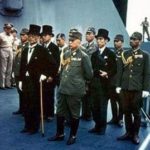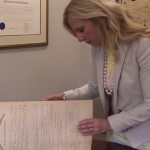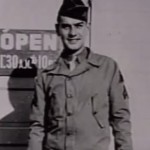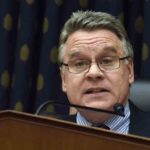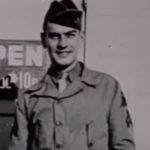Sometimes a Great Notion

By Stuart J. Moskovitz, Esq.
Tom Brokaw referred to the generation that went through World War II as the Greatest Generation. He was referring not only to the servicemen, but to those at home who sacrificed and contributed in so many ways to the war effort. The period was marked by Rosie the Riveter, war bonds, rationing, and, in misty memories, a united country working together to defeat a common enemy.
I would like to think of that generation as Tom Brokaw described it. Frankly, it feels a lot better than dissecting what really happened and dwelling on the isolated instances that stained that period.
The fact is, many in Congress itself were against our entering the war, even after Pearl Harbor was bombed. Many in Congress wanted us to fight Russia, not Germany. Had the Japanese not bombed Pearl Harbor, it is not likely Roosevelt would have mustered support to enter the war against Germany.
On the home front, much of the nation did come together once Pearl Harbor was bombed, but there were still pockets that did not. Frankly, much of America remained unmoved by the Holocaust and would not have support any unusual effort by Roosevelt to focus on saving Jews. Many in Congress would not have supported any such effort. This period also brought us the Supreme Court decision of Korematsu v. United States, a decision that stands with the Dred Scott decision as among the most horrid blemishes on an otherwise great national story.
We can view that period as Tom Brokaw described it, representing the vast majority of Americans acting in concert, or we can pull out isolated instances of those who were not exactly citizens of the Greatest Generation. It is a matter of perspective.
As united as the nation was after 9/11, there were pockets in America that opposed the Patriot Act, there were pockets in America convinced that America deliberately destroyed its own buildings in order to go after Moslems in the Middle East, there were pockets in America who were convinced Israel destroyed the World Trade Center in order to pressure America to fight their battle against terrorism. Again, we can view the vast majority of Americans as they stood united against terrorism, or we can focus on the few who stand out as not within the common bond.
In his novel Sometimes a Great Notion, Ken Kesey paints a portrait of a family that would not give in to the pressures of strikers or even nature, refusing to abandon their home with the river advancing on it while so many others in the path of the river abandoned theirs. To the strikers, this family supplying lumber to the mills while the strikers were out of work was anything but admirable. To others, the fact that it would continue to supply needed products was courageous. What Ken Kesey pointed out so poignantly is that what you see depends on where you stand.
That brings us to today. The vast majority of Americans are acting in concert, wearing masks, working together to aid those in need of help, financially, medically, or so many other ways. Many Americans are out of work receiving no income. We knew before the pandemic that many Americans lived paycheck to paycheck. They could not afford to lose a single paycheck, let alone months of going without income. We knew that there are vulnerable people in this country who cannot afford physically to contract this disease, as shown by the burden on our hospitals and morgues. We knew that we needed to take extraordinary steps, and still do, to try to bring this disease under control.
We can view the health workers, and the mask wearers and those sacrificing financially, the overwhelming majority of Americans, as typical of America and its people. Or we can take isolated instances of a relatively small portion of the population who hoard toilet paper, demonstrate at the capitals, attack the President when he acts, attack him when he doesn’t, or uses the crisis to forward extremist agendas for political purposes. Where you stand determines what you see.
When I see people with sick relatives attacking the President for not being omniscient and acting before there was a single reported case in this country, I understand their perspective. I do not need to agree with them to understand how their views came to be. When I see protestors in financial distress that will not be alleviated by the ongoing government programs demanding to go back to work, I may not agree with them, but I understand why they have the views they have.
It would be nice if the press were what it once was in this country and acted to unite us instead of dividing us. It would be nice if late night talk show hosts used their positions to act in the country’s interest rather than wasting their opportunity by fomenting continued division and antagonism. That’s not where we are right now.
But as always, this nation’s path is determined by the people, not late night talk show hosts or even politicians. We can choose not to watch those who are dividing us. We can demand that our “entertainers” be like the bulk of the Greatest Generation. We can demand that our “newscasters” be like the newscasters of old and present the news, not their opinions or slants. We can accomplish this by changing the buttons we press on our remotes.
We can be better by not assuming everyone with whom we disagree has evil motives or is stupid. We can be better by understanding that everyone has different interests and needs that motivate them. It is why we have flourished with the form of government we have, one that recognizes that we stand in different places and where we stand determines what we see.
We will survive this pandemic. But it is an opportunity for us to improve, to diminish the factors that have divided us long before the pandemic began. We can continue to disagree with each other while recognizing that everyone has a different background, different interests, different needs. We will be a better nation when each of us recognizes that our individual beliefs are sometimes a great notion, and sometimes not.
Stuart J. Moskovitz, Esq, is a fomer mayor of Manalapan. He meant the headline to read “notion,” not “nation.”

